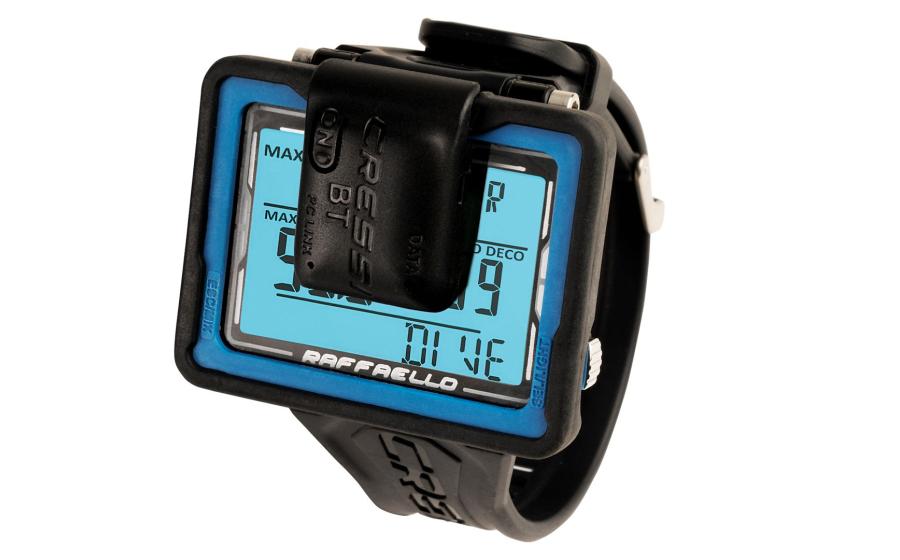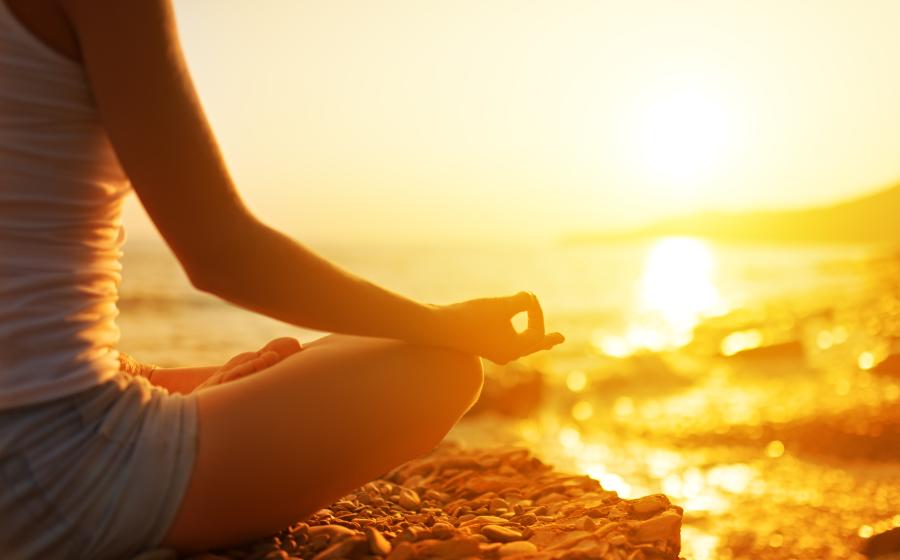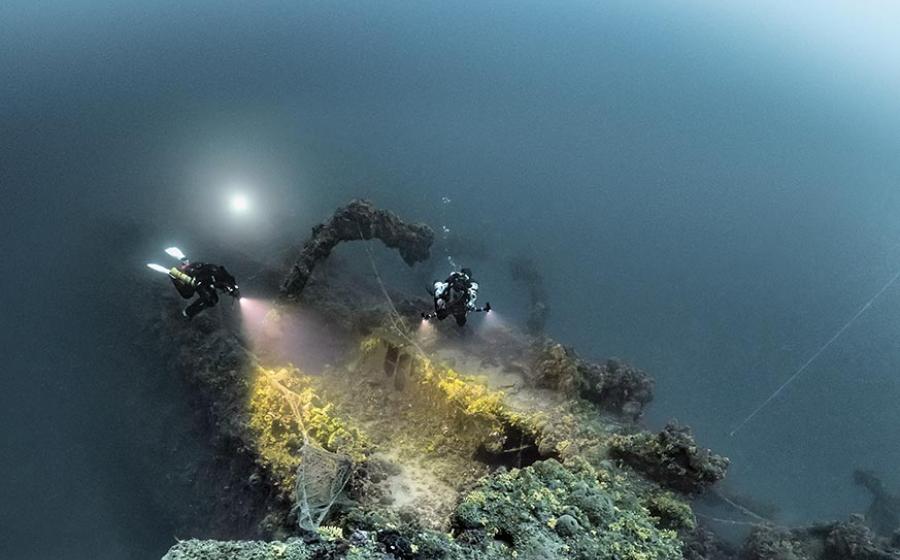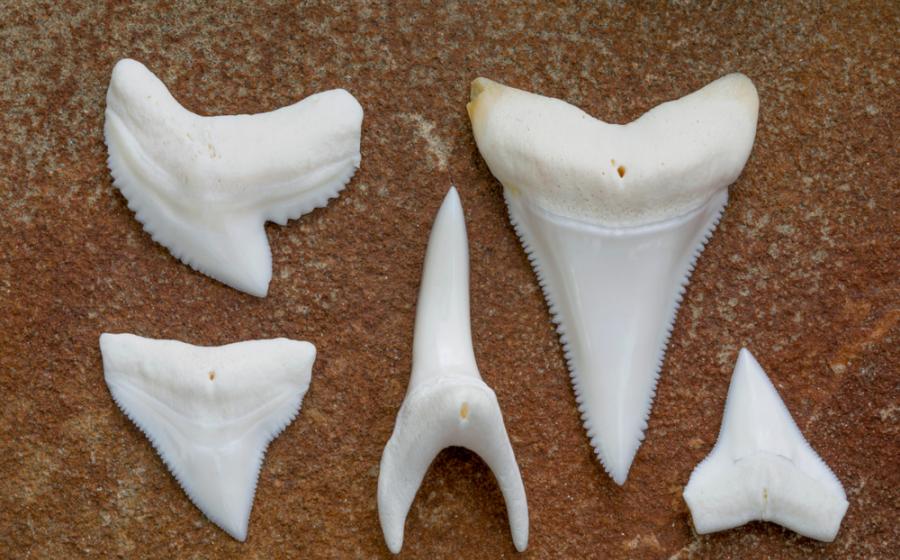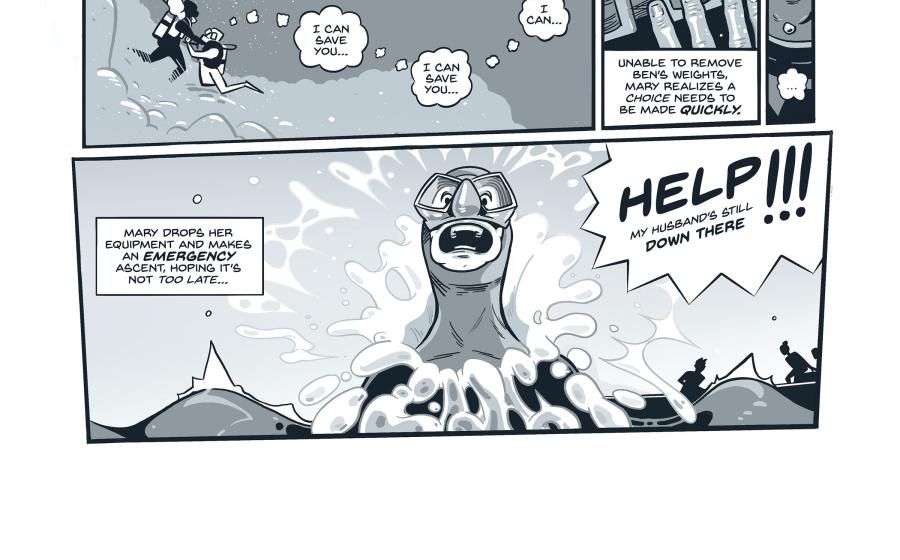Shark Legacy Project Founder Giacomo Palavicini Honored for Saving Sharks in Roatan, Honduras

Giacomo Palavicini
Shawn Jackson
OCCUPATION: Director, Roatan Marine Park FOUNDED: The Shark Legacy Project, to protect sharks on Roatan VALUE OF A LIVE SHARK: $47,000 annually, as demonstrated by SLP
Now the director of the Roatan Marine Park, Giacomo Palavicini in 2010 was instrumental in demonstrating the value of shark tourism in Honduras, and in persuading its government to declare a shark-fishing moratorium. For that he is our July 2015 Sea Hero.
How did you first get involved with Roatan Marine Park?
In 2009, I started working side by side with the Roatan Marine Park (RMP) when I started the Shark Legacy Project (SLP) with the idea to give protection to sharks on Roatan due to their importance and value as a tourism attraction for diving.
This alliance helped to get the moratorium for shark fishing in Honduras in 2010.
In 2012 I was offered to be the executive director of the RMP to achieve a stronger stand towards conservation, awareness and enforcement.
What is the biggest challenge you face at the marine park?
Our biggest challenge is the fact that there is a huge gap between government and communities. And you can also see it with NGOs. We have worked hard to close that gap and help the communities to feel empowered and understand that its in their best interest in taking care of their resources.
Tell us a little bit about your work in shark conservation, and in persuading Honduras to enact protections. What's been your most rewarding moment on that project?
Our conservation effort here with the SLP was something I didn’t expect to happen so fast. We started working with the dive shark operators Waihuka Adventure Divers and with them I could get a rough estimate of the value of each shark per year as a tourism attraction for diving — this value is around US $47,000.
With the RMP we went in November 2009 to the fishing authorities and other government agencies just after the political turn over in 2009 and we presented proof that sharks were being fished in the Bay Islands, and also presented the values we obtained from the shark diving operators. This information caught their attention so I added the fact that if they made an effort to protect these animals they would not only insure a steady good income from tourism but also the protections would give the government a positive image that would help reduce the negatives they had.
Sadly enough, a week after we met in Tegucigalpa, the government confiscated a big cargo of sharks — mostly hammerheads, all juveniles — and this actually made them make the decision to close the fisheries in February of 2010 and declare a sanctuary for sharks in June of 2011.
How can divers and Scuba Diving's readers help further your work?
We all have the power to say no. We need to do research when we go for vacation and the when we go to a restaurant, dive operation or even a destination that has poor or not environmentally responsible practices — we should say no and find some other place. Businesses only see money, sadly, so when their income is being affected by their bad practices, they will shift if they want to stay in business.
So if for example you go to a restaurant and you realize they serve shark, turtle or other endangered species, not only leave the place but make sure that you tell your friends.
You can be proactive with the many NGOs that work towards preserving our natural heritage, and be a responsible diver and human being towards how we care for our natural surroundings.
What's next for you and the Roatan Marine Park?
The RMP is working hard to become a stronger NGO, to be sustainable and have the capability to impact in a positive way more people, helping creating alternatives for local fishers and community members. We need to reduce the fishing pressure on our reefs so they can recover and our fishermen can continue fishing as their fathers did, but in a more responsible and sustainable way.
We also want to expand our patrols all around the island of Roatan, not only for enforcement but also to help in prevention or rescue of marine incidents of boats or other cases.
Is there anything else you would like readers to know about?
The world is changing, and also our oceans, so we have the responsibility as divers and lovers of the ocean to care for it. You can do it on a daily basis, teaching our kids not to touch marine animals, enjoying with our eyes and heart, and that everything we do at home does have an effect on our oceans so be responsible on how we use our resources. And if you come to any of our marine protected areas, support all of us as good, responsible divers — you can do that by understanding the rules and regulations of the park and sharing your passion with others.
Meet all of the Scuba Diving Sea Heroes

Shawn JacksonGiacomo Palavicini
OCCUPATION: Director, Roatan Marine Park
FOUNDED: The Shark Legacy Project, to protect sharks on Roatan
VALUE OF A LIVE SHARK: $47,000 annually, as demonstrated by SLP
Now the director of the Roatan Marine Park, Giacomo Palavicini in 2010 was instrumental in demonstrating the value of shark tourism in Honduras, and in persuading its government to declare a shark-fishing moratorium. For that he is our July 2015 Sea Hero.
How did you first get involved with Roatan Marine Park?
In 2009, I started working side by side with the Roatan Marine Park (RMP) when I started the Shark Legacy Project (SLP) with the idea to give protection to sharks on Roatan due to their importance and value as a tourism attraction for diving.
This alliance helped to get the moratorium for shark fishing in Honduras in 2010.
In 2012 I was offered to be the executive director of the RMP to achieve a stronger stand towards conservation, awareness and enforcement.
What is the biggest challenge you face at the marine park?
Our biggest challenge is the fact that there is a huge gap between government and communities. And you can also see it with NGOs. We have worked hard to close that gap and help the communities to feel empowered and understand that its in their best interest in taking care of their resources.
Tell us a little bit about your work in shark conservation, and in persuading Honduras to enact protections. What's been your most rewarding moment on that project?
Our conservation effort here with the SLP was something I didn’t expect to happen so fast. We started working with the dive shark operators Waihuka Adventure Divers and with them I could get a rough estimate of the value of each shark per year as a tourism attraction for diving — this value is around US $47,000.
With the RMP we went in November 2009 to the fishing authorities and other government agencies just after the political turn over in 2009 and we presented proof that sharks were being fished in the Bay Islands, and also presented the values we obtained from the shark diving operators. This information caught their attention so I added the fact that if they made an effort to protect these animals they would not only insure a steady good income from tourism but also the protections would give the government a positive image that would help reduce the negatives they had.
Sadly enough, a week after we met in Tegucigalpa, the government confiscated a big cargo of sharks — mostly hammerheads, all juveniles — and this actually made them make the decision to close the fisheries in February of 2010 and declare a sanctuary for sharks in June of 2011.
How can divers and Scuba Diving's readers help further your work?
We all have the power to say no. We need to do research when we go for vacation and the when we go to a restaurant, dive operation or even a destination that has poor or not environmentally responsible practices — we should say no and find some other place. Businesses only see money, sadly, so when their income is being affected by their bad practices, they will shift if they want to stay in business.
So if for example you go to a restaurant and you realize they serve shark, turtle or other endangered species, not only leave the place but make sure that you tell your friends.
You can be proactive with the many NGOs that work towards preserving our natural heritage, and be a responsible diver and human being towards how we care for our natural surroundings.
What's next for you and the Roatan Marine Park?
The RMP is working hard to become a stronger NGO, to be sustainable and have the capability to impact in a positive way more people, helping creating alternatives for local fishers and community members. We need to reduce the fishing pressure on our reefs so they can recover and our fishermen can continue fishing as their fathers did, but in a more responsible and sustainable way.
We also want to expand our patrols all around the island of Roatan, not only for enforcement but also to help in prevention or rescue of marine incidents of boats or other cases.
Is there anything else you would like readers to know about?
The world is changing, and also our oceans, so we have the responsibility as divers and lovers of the ocean to care for it. You can do it on a daily basis, teaching our kids not to touch marine animals, enjoying with our eyes and heart, and that everything we do at home does have an effect on our oceans so be responsible on how we use our resources. And if you come to any of our marine protected areas, support all of us as good, responsible divers — you can do that by understanding the rules and regulations of the park and sharing your passion with others.
Meet all of the Scuba Diving Sea Heroes





